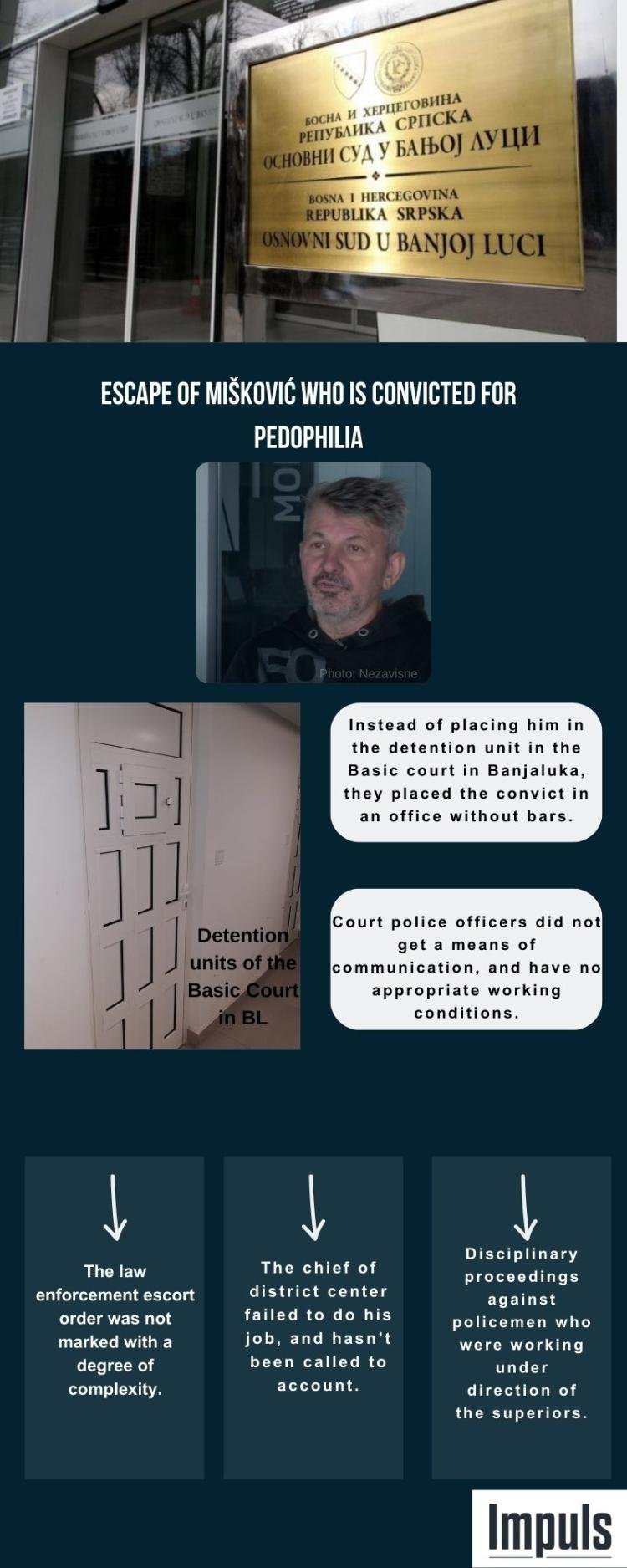Author: Miljan Kovač (Impuls)
Escape of Ivica Mišković, convicted of pedophilia, from the Basic Court’s building in Banjaluka was made possible with the improper actions of the managers of the Judicial Police and responsible persons in the judiciary. The information and documents in our possession clearly indicate who is responsible for this event, while the blame is unjustifiably being placed on the three court police officers against whom disciplinary proceedings have been initiated.
Instead of being placed in the detention unit located in the basement of the court after the sentencing, Mišković was placed in an office on the ground floor of the building, which has no bars. There was no obstacle for him to go out through the office window, so he took advantage of that opportunity.
Court police officers against whom disciplinary proceedings are being conducted did not even receive any means of communication from their superiors. No degree of complexity was noted on the law enforcement escort order. Therefore, the police officers were deprived of the possibility to apply the means and measures necessary to ensure and prevent the escape of a dangerous person.
An office instead of detention unit
The Basic Court confirmed to us that the convicted person was not placed in the detention unit intended for that, explaining that the room has certain “technical defects”, so the court police still have not taken it over.
“Namely, technical defects were observed that were not under the scope of the project when the detention units were reconstructed, and which may affect the safety of the detainees during their stay in the premises and which must be eliminated before the detainees are housed,” said the court.
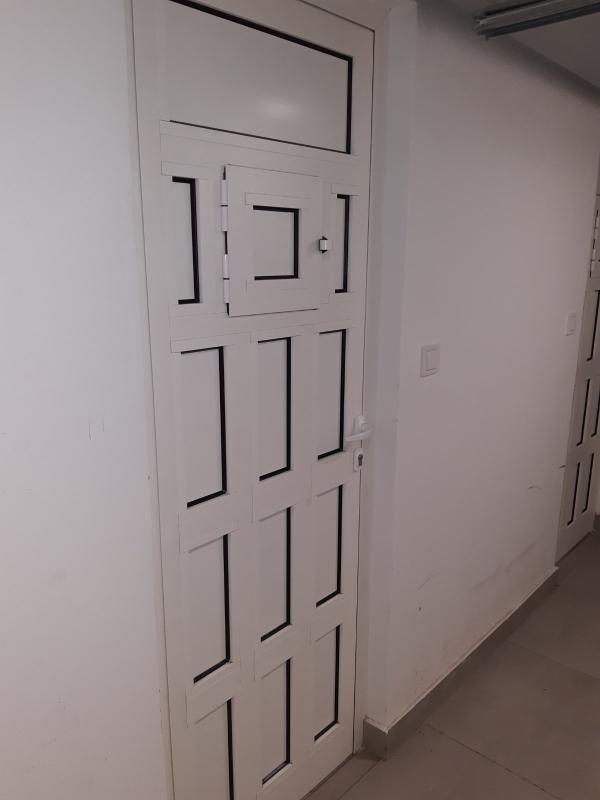
Detention room of the Basic court in Banjaluka that is not used / Photo: Impuls
The Basic Court building in Banjaluka was reconstructed in 2017 with funds of the European Union. The company Integral inžinjering did the work worth around BAM 5.2 million. A detention unit was also built then, but it has been housing various archives instead of detainees ever since.
Who is responsible for the fact that even after the millions invested, the alleged “technical defects” in the detention unit have not been addressed for five years already? It is a question to which no one provided an answer. The culprits for this most certainly cannot be identified amongst the ordinary court police officers.
If the room intended for this does not meet the technical conditions for detaining persons, the question arises as to what conditions are met by the office in which Mišković was placed, and which is definitely not intended for that?
“It is absurd to even talk about it, we have been for years now placing convicted persons, including dangerous criminals, in an office used by the court police instead of a room with bars. It certainly cannot be the fault of the court police officers, who are being used as a scapegoat. That office has no bars, no protection and it was only a matter of time when someone would take advantage of it”, said our interlocutor from the court police (name known to the editorial board).
Against the regulations
The Rulebook on Management in the Court Police of Republika Srpska (from January 24, 2019) stipulates that the head of the district center, among other things, signs the order by “marking the degree of complexity and risk of the order received, enters the date of signing and affixes his signature thereon”.
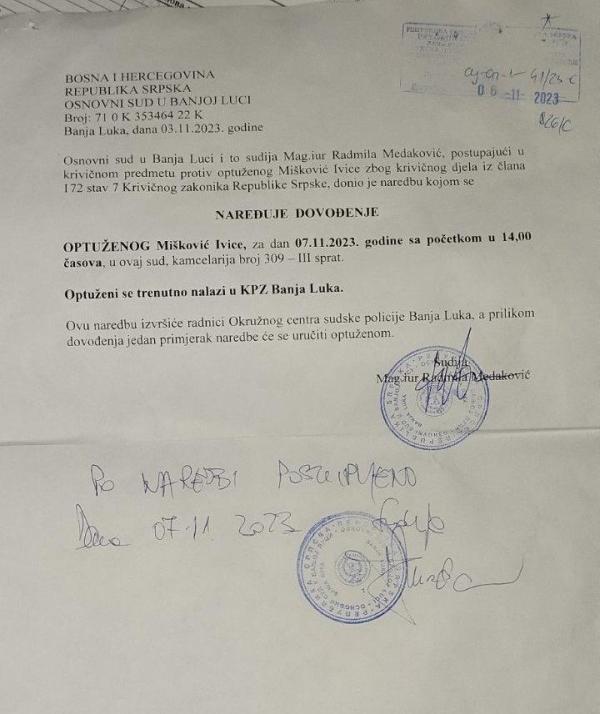
“The degree of complexity and risk for the execution of a specific order is determined by the head of the district center on the basis of previous discoveries and previously collected information about the person or persons to whom the order applies, the type of criminal offense for which the person is suspected or the person was already accused or convicted of the same offense…”, reads, among other things, Article 5 of the aforementioned Rulebook.
The Rulebook further stipulates, in Article 6, that the marks A and B are used to determine the degree of complexity. A is used for orders of the usual degree of complexity, and B denotes a higher degree of complexity and risk “whose execution requires special attention and a greater number of court police officers” or even involvement of the ESU unit of the court police.
Two police officers who were suspended after the escape of Ivica Mišković had received as many as four orders that day. Not one of them was marked with a degree of complexity.
If the orders had been duly marked, the chief would have had to inform the director of the police thereof, who would have made a decision about what kind of unit and how many members of the court police must be engaged.
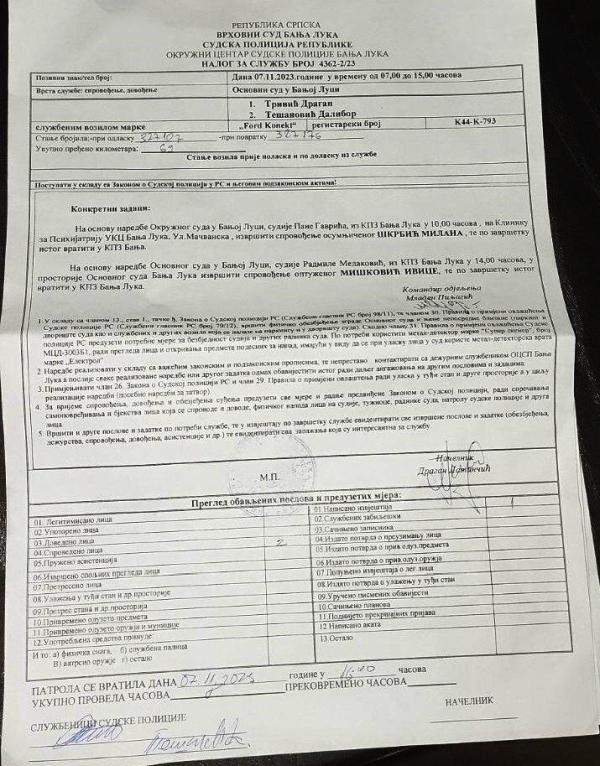
The director of the court police appeared in the court that day immediately after the escape of Mišković. However, he did not call the chief of the district police department to account, but literally told the two court police officers to hand in their badges immediately because they were suspended. Disciplinary proceedings were soon initiated against these two officers, but also against another court police officer.
A means of communication for ties and connections
Although their job is to escort persons in conflict with the law, including serious criminals, members of the Court Police in the Basic Court of Banjaluka do not have permanent means of communication (telephones, radio stations, etc.). They get them only occasionally from the shift chief or his deputy by the senior managers’ orders along with orders for the daily tasks and duties.
On the day when Mišković escaped and when they had four tasks that had entailed escorting persons accused/convicted of serious crimes, the court police officers did not get a means of communication.
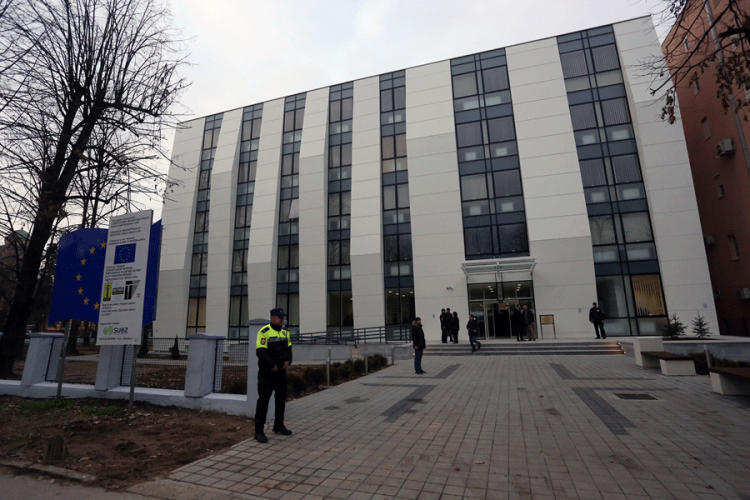
Basic court in Banjaluka/ Photo: Nezavisne
This is, according to our interlocutor, a common practice in the Basic Court in Banjaluka.
“A single mobile phone is the means of communication in the Basic Court. That phone is with the shift manager and it is difficult to get hold of it as it is used when the head of the department or the police director need something done in the court. Then they call the shift manager on that phone and ask him to get a document, a certificate for someone, or to “speed up” something in the court”, said our source.
When asked whether they are aware of the mentioned facts and what they are going to do about it, the Management of the Court Police of the RS said that they are not able to answer our questions due to the “ongoing internal procedure”. It was also added that “with reference to the mentioned event, two employees were temporarily removed from their jobs in the court police, and disciplinary proceedings were initiated against three employees.”
Not a word about the responsibility of those who failed to provide adequate equipment to these employees.
